Hot Springs in The Great Wilderness
The Great Wilderness is home to many breathtaking landscapes, but among its most endearing features are hot springs, natural wonders offering solace and healing
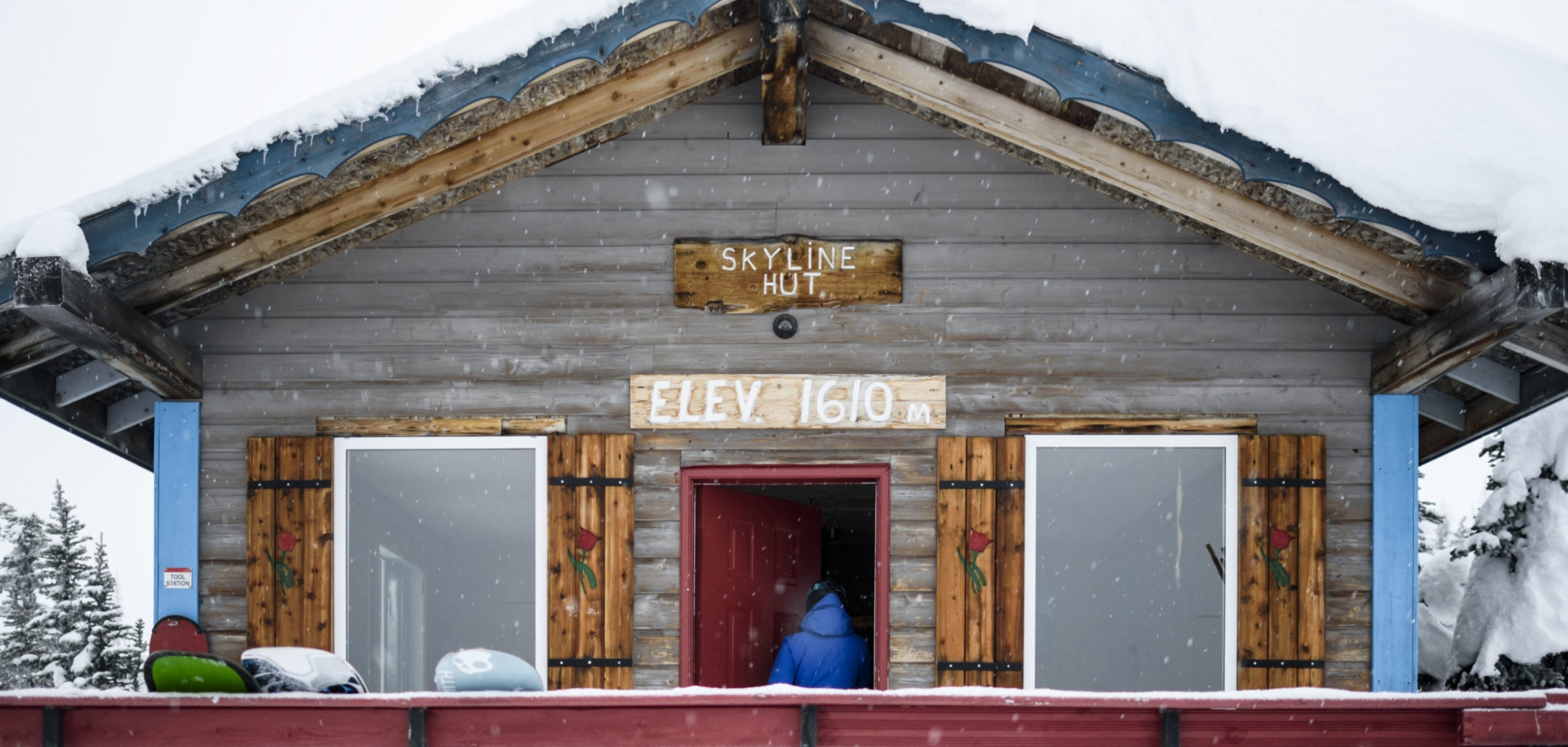
Guest post by Abby Cooper
Last winter we set off by train to explore skiing in Northern British Columbia. Gliding along the edges of the Skeena River from Prince George to Terrace, we sat inside a dome car with a windowed roof and watched the stars twinkle overhead while we dreamt of skiing every summit in sight.
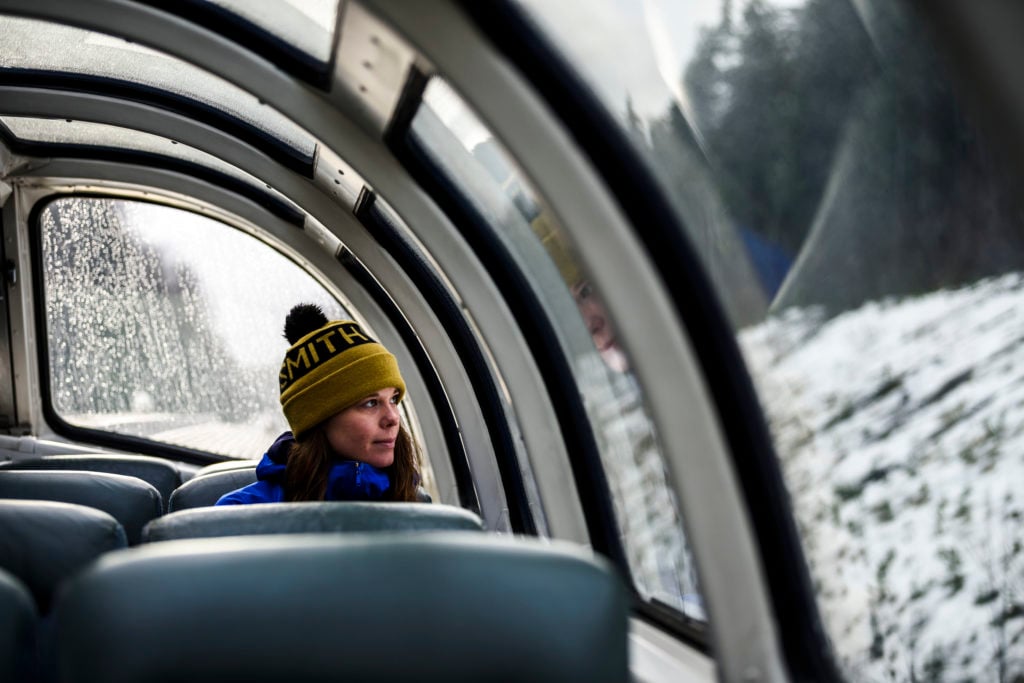
Dreaming of mountains on board VIA Rail Canada. Photo: Andrew Strain
Our first stop? Powder King Mountain Resort to find out if the rumours of fresh snow were true. Large snowflakes fell all day, painting the trees white as we rode powder laps from dawn until dusk. Keen to explore another resort near Prince George, we headed to Tabor Mountain Ski Resort. From the top of this resort we could see the sun hit ski runs on nearby Purden Ski Village and the endless terrain of Bearpaw Heli-Skiing. The opportunities to ski near Prince George were certainly a pleasant surprise. We spent our afternoons wandering downtown—popping into coffee shops, dining at local restaurants, and sipping wine at Northern Lights Winery while the sun set.
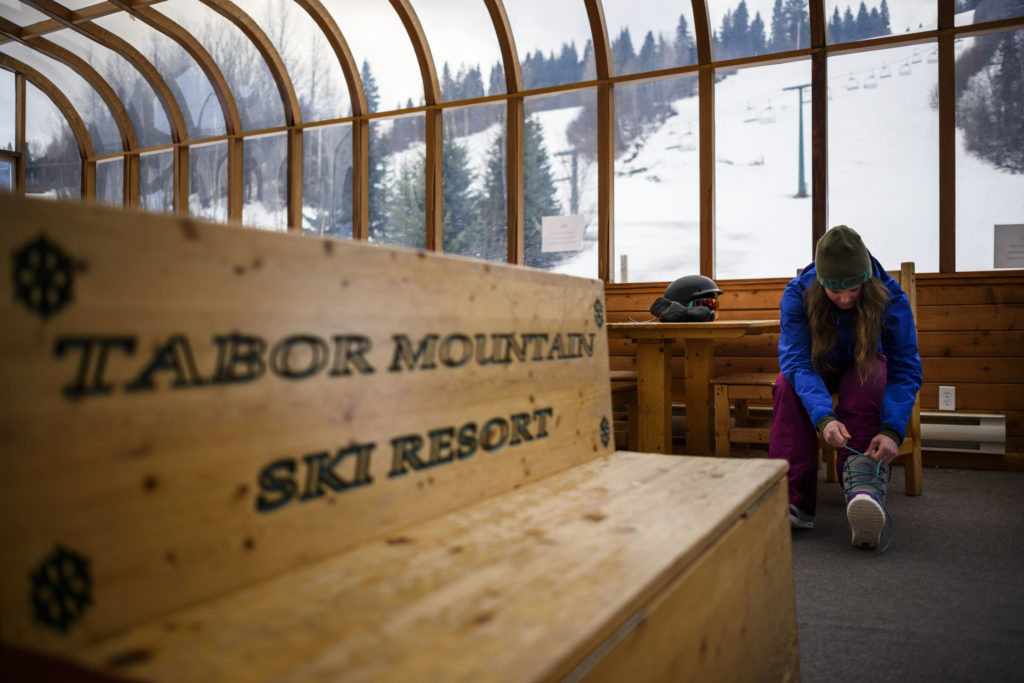
The lodge at Tabor Mountain Ski Resort near Prince George. Photo: Andrew Strain
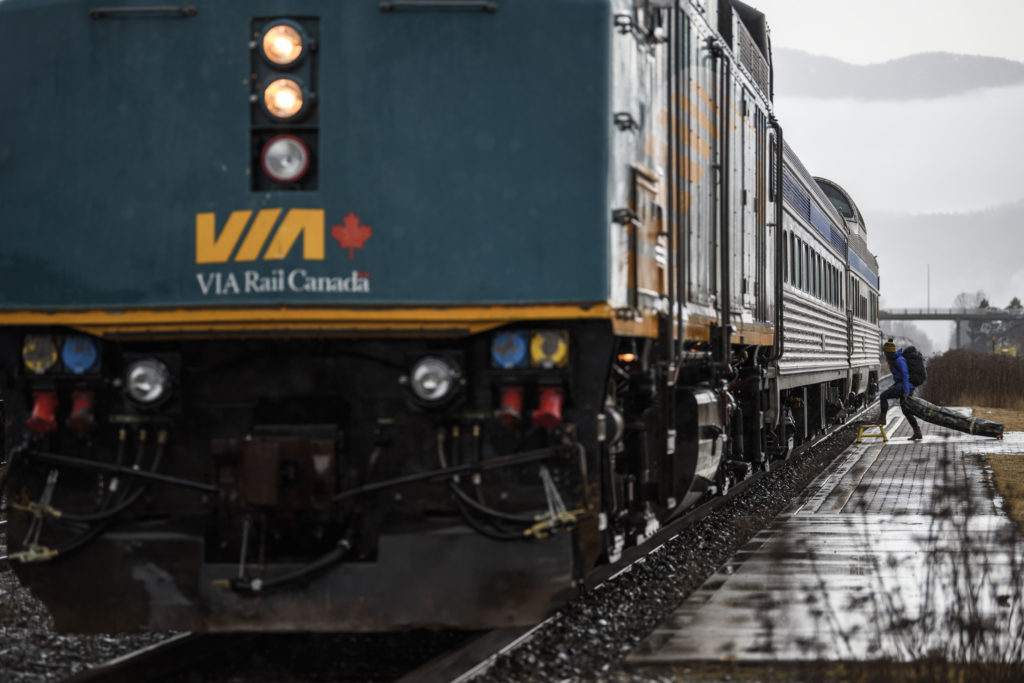
Loading up gear onto the VIA Rail Canada train in Northern British Columbia. Photo: Andrew Strain
We loaded up our gear and hopped back on the VIA Rail Canada train bound for Smithers. Hudson Bay Mountain welcomed us by showing off its perfectly symmetrical peak and runs that connect skiers right back to town. Nearby sits the Babine Range, home of a unique cat-ski experience. This is where Skeena Cat Skiing operates the only cat-skiing business in Northern British Columbia, and one of the few cat-skiing backcountry basecamps in Canada. The surrounding alpine ridges gave us a chance to ski steep and technical lines, or simply cruise flowing slopes.
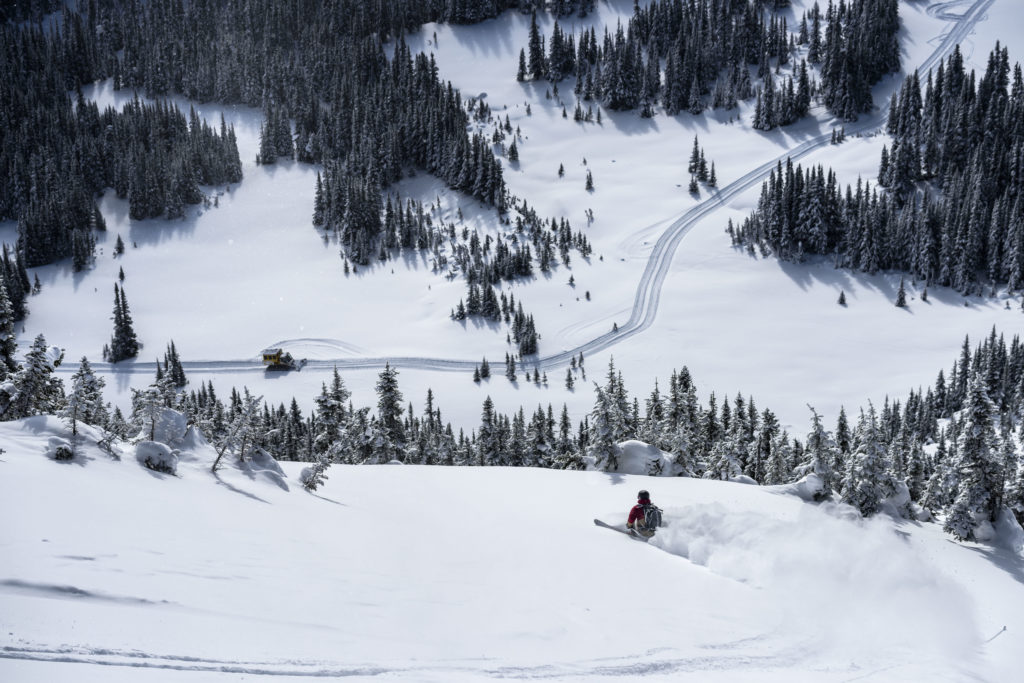
Just glimpse at some of the terrain at Skeena Cat Skiing. Photo: Andrew Strain
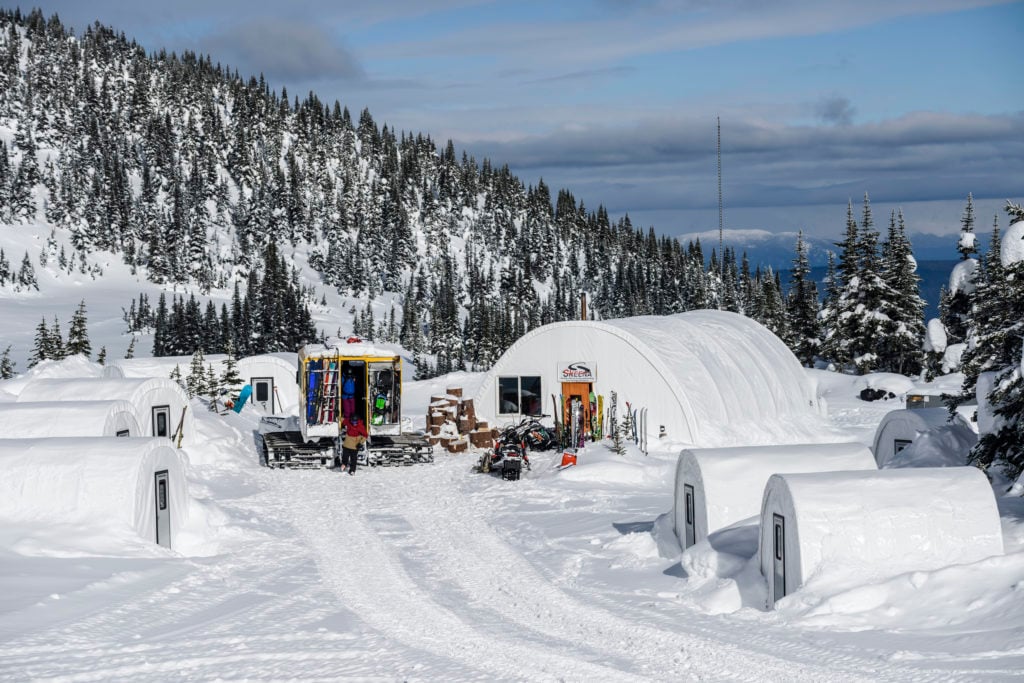
One of Canada’s first cat-skiing backcountry basecamps. Photo: Andrew Strain
Swapping train for cars, we opted to drive to Terrace so we could visit Ksan Historial Village along the way. We admired views of the Seven Sisters Mountains and the dramatic Moricetown Canyon before arriving at this site at the confluence of the Bulkley and Skeena rivers. We toured traditional longhouses, learned about local First Nations culture, and gazed at totem poles that stretched to the sky.
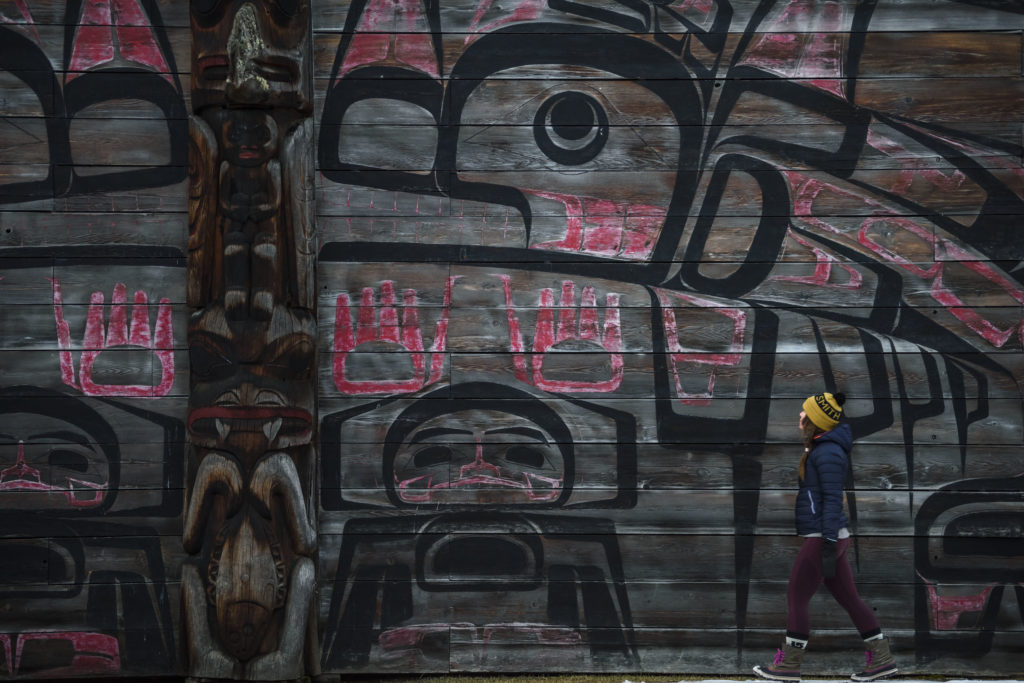
Ksan Historical Village. Photo: Andrew Strain
We spent the next two days mesmerized by Shames Mountain, exploring all that surrounds it and savouring the pristine snow. Rugged cliffs and contrasting smooth ridge lines connect everything in sight, with endless terrain in between covered in a fresh coat of white.
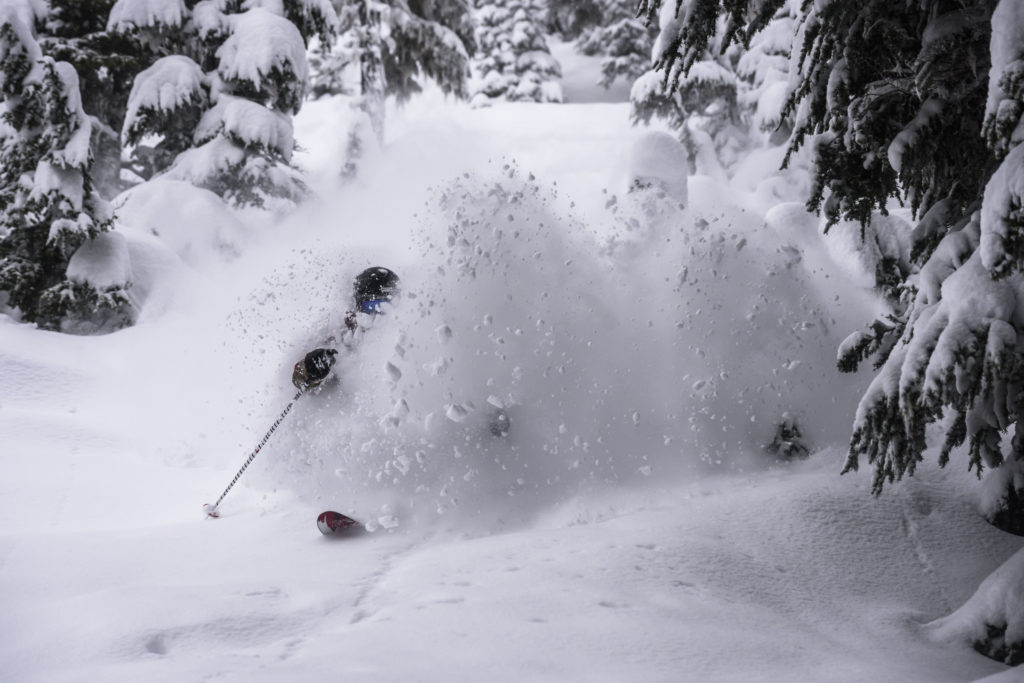
Finding all the fresh snow at Shames Mountain. Photo: Andrew Strain
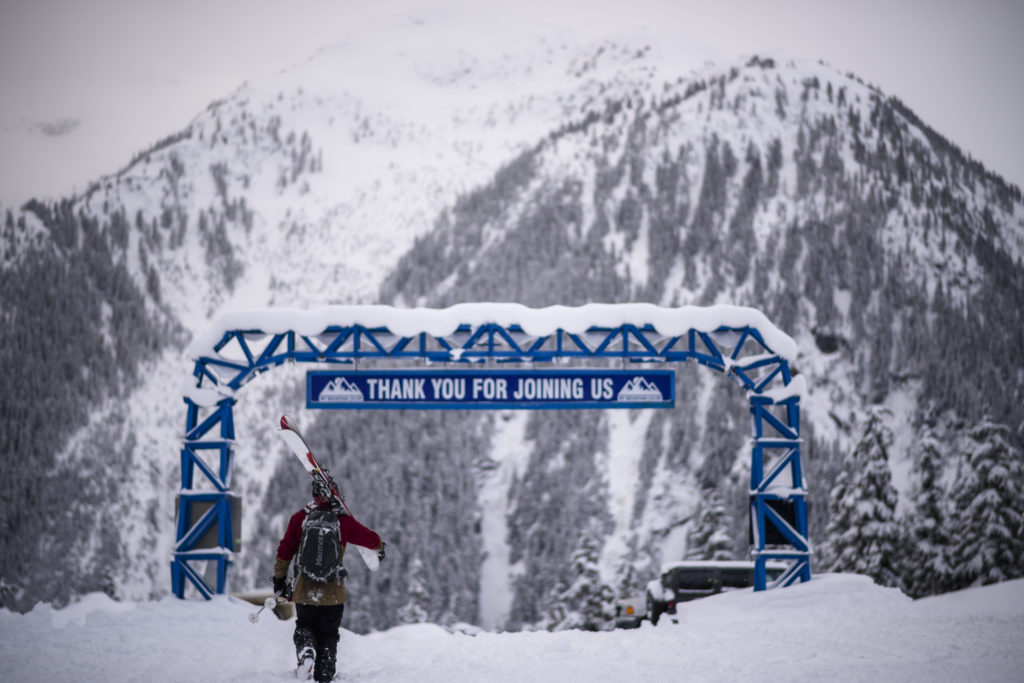
Shames Mountain near Terrace. Photo: Andrew Strain
The last experience on our bucket-list Northern BC ski trip was heli-skiing. Over the course of a week an unimaginable number of vertical meters were clocked in at Northern Escape Heli-Skiing. Alpine skiing to pillow descents and skiing between old-growth forest kept smiles on the faces of guests from all over the world. The lodge atmosphere was cosy and guides felt like family while a fleet of helicopters sat in the front yard. It would have been easy to move in.
Trains, planes, automobiles, helicopters, snowcats, T-bars, and chairlifts created a truly unique Northern British Columbia ski experience. We will be back. I think we only saw a glimpse of what skiing in Northern BC has to offer.
Alpine resorts are bordered by uncontrolled wilderness areas. Respect the boundary lines and don’t ski out of bounds. Make sure you know the Alpine Responsibility Code and learn about the danger of tree wells. Skiing in backcountry areas means severe weather and avalanches are real hazards. You and everyone in your group must be self-sufficient—carrying all the proper gear (transceiver, shovel, and probe) and have avalanche training. AdventureSmart is a great resource to help you get informed before heading outdoors. and always remember the three Ts—trip planning, training, and taking the essentials.